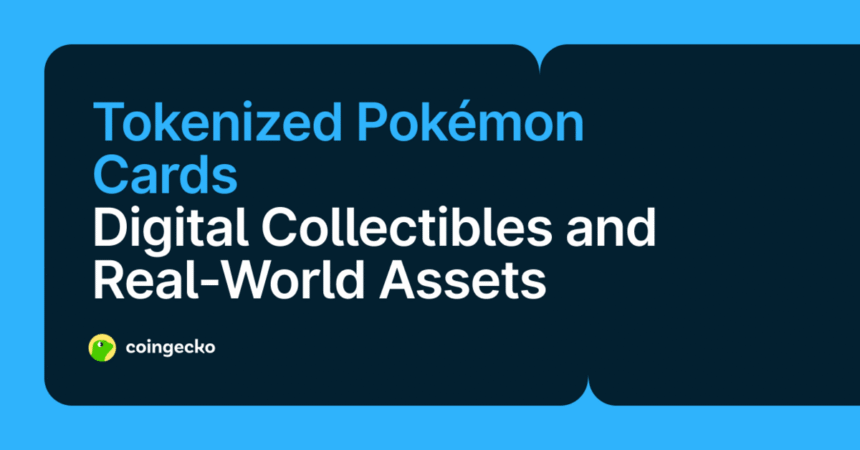In a groundbreaking development within the collectibles sector, tokenized Pokémon cards have emerged as a hybrid between traditional trading cards and modern blockchain technology. These innovative assets are represented as non-fungible tokens (NFTs) that are directly backed by physical Pokémon cards stored in secure vaults. Unlike traditional NFTs that exist solely in the digital realm, tokenized Pokémon cards offer collectors the unique ability to redeem their digital tokens for the corresponding physical cards.
The burgeoning market for tokenized Pokémon cards has demonstrated remarkable growth, processing an impressive $124.5 million in trading volume in August 2025. This figure represents a staggering 5.5 times increase compared to earlier in the year. As a subset of the overarching $21.4 billion trading cards market, tokenized Pokémon cards are addressing longstanding issues that have traditionally hindered the trading of physical collectibles, such as authentication challenges, shipping risks, and limited liquidity.
Mechanism of Tokenization
Tokenized Pokémon cards operate as blockchain-based representations of physical trading cards that have undergone professional grading. Each card is stored in a secure third-party vault, ensuring that collectors can trade their cards digitally without the risks associated with physical shipping. The process begins when collectors send their cards to validated vaults where they are authenticated and graded by recognized services. Once documented and verified, each card is stored in climate-controlled settings, fully insured to mitigate concerns around preservation and security.
The transition from physical to digital is facilitated through smart contracts deployed on the blockchain, typically following ERC-721 standards. These smart contracts create NFTs that are cryptographically tied to their corresponding physical cards, ensuring that each digital token has a verifiable 1:1 backing relationship with the physical asset. In this way, every token serves as a digital certificate of ownership.
Advantages of Tokenized Trading
There are several key benefits associated with trading tokenized Pokémon cards. These include:
-
Instant Global Trading: Transactions can be completed in seconds, removing geographical barriers and eliminating shipping delays that often plague traditional markets.
-
Enhanced Security: Professional grading and blockchain technology help authenticate cards, minimizing the chance of counterfeiting.
-
Transparent Pricing: The ability to access real-time market data and transaction history enables clearer price discovery, which has often been an issue in conventional trading.
-
Increased Liquidity: Platforms often feature instant buyback options that allow for quick exits, while fractional ownership options make high-value collectibles accessible to a larger pool of collectors.
-
Lower Costs: On-chain marketplaces charge significantly less in fees compared to traditional platforms.
Market Dynamics and Challenges
This exciting innovation exists within the broader context of real-world assets (RWA), where the appearance of digital representations has opened new avenues for liquidity and accessibility. The market for tokenized collectibles has grown rapidly, attracting both traditional card collectors and digital natives who see value in the novel trading ecosystem.
However, challenges remain, particularly regarding regulatory compliance. The landscape for tokenized collectibles is ambiguous; many offerings may fall under the classification of securities, requiring adherence to regulatory frameworks. Additionally, the operational risks associated with centralized vaulting and market volatility pose further concerns for potential investors.
Innovative Platforms
Various platforms are spearheading this revolution in card trading. For instance, Collector Crypt utilizes gamified features to enhance user engagement through randomized NFT packs, while Courtyard.io offers a zero-fee marketplace for vaulted items alongside instant buyback options. Phygitals and RIP.FUN have also introduced unique experiences, such as integrating physical and digital card reveals, providing immediate liquidity, and ensuring authenticity through verification processes.
As this dynamic market continues to evolve, it will be crucial for stakeholders to navigate regulatory requirements and ensure the security of their platforms. While tokenized Pokémon cards represent a significant advancement in the collectibles space, they also underscore the need for sustainable business models that balance innovation and participant protection. Collectors and investors alike are encouraged to conduct thorough research to make informed decisions in this rapidly-changing environment.







